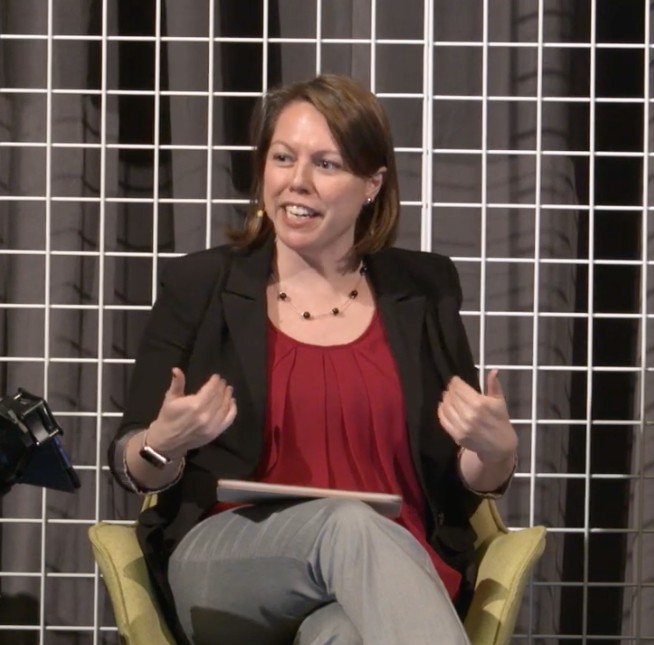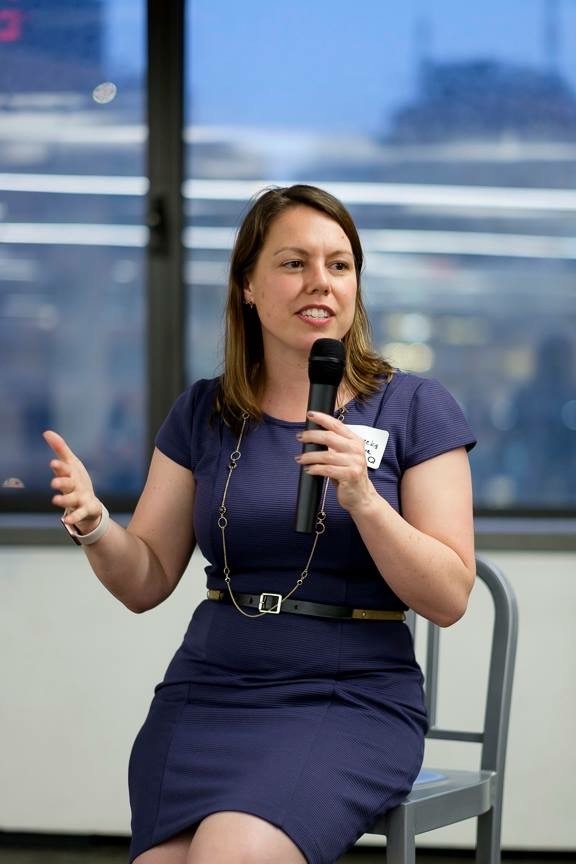We were lucky to catch up with Karen Weeks recently and have shared our conversation below.
Karen, thanks for taking the time to share your stories with us today Coming up with the idea is so exciting, but then comes the hard part – executing. Too often the media ignores the execution part and goes from idea to success, skipping over the nitty, gritty details of executing in the early days. We think that’s a disservice both to the entrepreneurs who built something amazing as well as the public who isn’t getting a realistic picture of what it takes to succeed. So, we’d really appreciate if you could open up about your execution story – how did you go from idea to execution?
in 2019, I started doing some freelance coaching here and there (really just a friend who needed some help or a fellow HR leader who was looking for some advice). When the pandemic hit, I assumed that would go away because everyone was either distracted by what was going on in the world or they were being laid off and wouldn’t be able to afford a coach. But instead the opposite happened. People were taking the time to reflect and to figure out what they really wanted out of their careers. HR leaders, like myself, were trying to take care of teams and ourselves and we needed more support than ever. I realized I might have something special, I can be a career coach but also an HR Partner to people who I work with, that I could help so many more people outside of my internal team, at a time people really needed that help. I still had my full time job as an HR leader, I still do today, so I wanted to lean in to the opportunities presenting themselves. but had to be very careful of my bandwidth. I actually hired my own coach to work through how to set up a side business (literally like how to create an LLC, set up a bank account, think about sales and client management), how to to make sure I was scaling my life at the same time (I hired a coordinator to help me in the business since I had to make sure I was spending the limited time I had in the right places), and to help me continue to be a great leader for the company I work for. Fast forward a few years, I am still the HR leader at the tech company I work for, I have a successful side business that is growing (again to help scale I hired another coach so we could continue to support our clients without pulling me in too many directions) and we have so many success stories of people finding new jobs that truly make them happy and people finding success in their careers! I’ve even helped a couple of entrepreneurs figure out how to build their own teams through my own experiences. The trick, and I have coaches that help me with this, is scaling at a pace that I can handle as a side hustle while still fueling this part of my own development!


Awesome – so before we get into the rest of our questions, can you briefly introduce yourself to our readers.
Twenty years ago, I made a career change from theatre to HR and never looked back! Throughout my HR career I have focused mainly on creating, scaling and growing great cultures for tech start-up companies. While I have had many HR roles, my favorite opportunities were always around career development. Partnering with new managers to help them take that pivotal step in their careers. Helping them develop their teams. Meeting with employees to help them navigate their career paths. Creating and leading trainings for teams. Even building programs like creating company values, revamping performance review processes and leading culture surveys to help identify where we can grow as a business and better support team members,
While still working as the Chief People Officer at Ordergroove, I also started a side business as a Career Development Coach. We help career-oriented humans get unstuck in their careers, so that they can shine brighter in business and life. That may be identifying career opportunities and development goals in your current role. Or deciding to make a career change and helping you navigate that search. Or helping new managers make that tough (but exciting) transition from rockstar individual contributor to people-focused, results-oriented managers. I am proud to have won awards as a people leader and the companies I have worked for have won several best places to work!
Additionally I host the “Shine at Work” podcast, I speak about career development, management and culture at events and conferences, and I published a workbook about how to give and receive feedback called “Setting the Stage”.
I am from New England originally, but recently Charlotte transplant from NYC where I live with my husband and furry babies.



How’d you build such a strong reputation within your market?
I truly believe you attract “your people”. So I have focused on being authentic in all my marketing, my outreach, my intro calls and when I network with people. I legitimately love staying connected with people and when I randomly think of someone, I will reach out to them. It’s not with an ask in mind or with an hidden agenda. Most of my clients have either been people I have worked with before, referrals, or people who found me one way or another and something about my message spoke to them. And that’s all because I am authentically me and I genuinely lead with caring about the person in front of me and how I can help. So if I randomly reach out to someone on LinkedIn, it’s with the goal of just reconnecting, seeing how they are, referencing something from our past and just letting them know I’m here if they ever need anything. And people know that I mean it so they feel safe and confident referring me to someone who might need help, or they remember back to when I have helped them before and they go “you know, I do need to talk to someone, can we chat”. Those relationships, my genuine goal to help others, and just being me is my reputation.



Do you have any insights you can share related to maintaining high team morale?
I love this question because it ties into both my own experiences as a leader but also all the work I do partnering with managers and leaders! My keys to leadership are the following…
1) Know your style and how that differs from others. Whether you use a tool like Myers-Briggs, DiSC, StrengthsFinder, Predictive Index, or not, you should know how you work best (communication, decision making, taking in information, relationship building, etc) and how that differs from your team. For example if someone on your team is very data driven or introverted and you focus more on big picture and are extroverted, you need to know that so you can adjust your style to meet them where they are. It’s great to have different styles on a team, it makes you a stronger team, but if you don’t acknowledge it and talk about it with your team, it will lead to conflict.
2) Connect with your team as humans. You are not their best friend, spouse, parent, therapist, financial advisor or anything other than their manager. But you are both humans. Get to know what they care about outside of work. Share learnings and vulnerability. Ask open ended questions to learn more about how they are doing in a 1:1, so it’s not just diving right into tasks and project updates. You can ask how they are doing (on a scale of 1-10 how was your week, what would have made it a 10), what is something they are proud of, what is a blocker they have currently, how can you be supporting them differently. Create space for them to share if they are stressed or distracted by things outside of work. This creates a level of trust that is very impactful in a relationship.
3) Set clear expectations, share feedback, and celebrate wins. The most frustrating thing for team members, and managers, is when there is unclear or misaligned expectations. So take the time to set goals with your team, describe what success looks like, hold recurring check ins, set milestones, and don’t shy away for constructive feedback or overlook the opportunity to share positive feedback! And when a milestone is hit, celebrate it. Finally, ask for feedback in return and be open to hearing it. Managing a team is a partnership, make sure feedback is a two way street. And if something changes with expectations or goals, make sure you communicate it in a timely manner and its clear what is changing, what is not changing, and why!
Al the above advice is applicable whether you have a part-time VA as your only employee or a team of 10, 20, 50, and growing!
Contact Info:
- Website: https://www.karendweeks.com
- Instagram: https://www.instagram.com/kdwcoaching_careers
- Linkedin: https://www.linkedin.com/in/karen-d-weeks-sphr-ms-5965775/
- Youtube: https://www.youtube.com/channel/UC640S1XJWcb2Ynu9Xk0GcHQ
- Other: https://www.buzzsprout.com/1051111 https://podcasts.apple.com/us/podcast/shine-at-work/id1518659433 https://open.spotify.com/show/6yQeBAHd6ujwQYGlPWQCUl
Image Credits
Alex Cason


